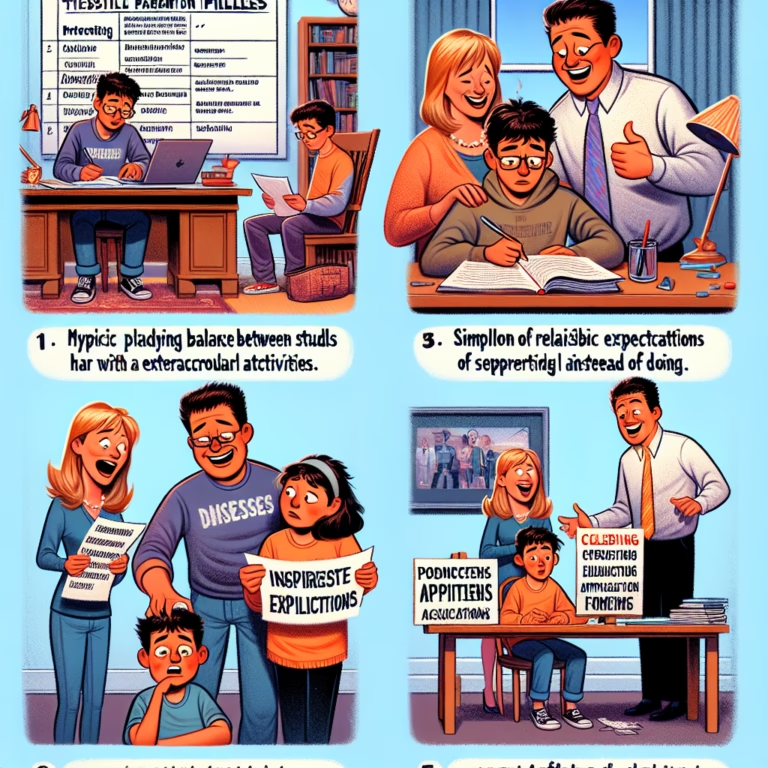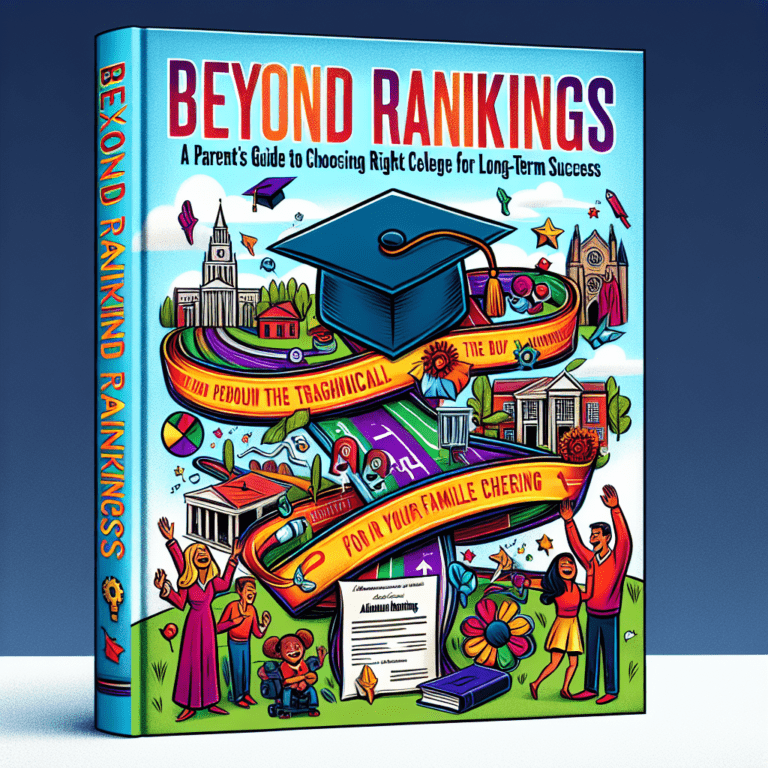

Guiding the Next Generation: How Parents Can Help Teens Develop Career-Ready Skills
Chapter 1: Overview of Career-Ready Skills
Career-ready skills are essential competencies that help teenagers integrate into the workforce effectively and confidently. These skills include critical thinking, communication, teamwork, problem-solving, and adaptability. When parents actively engage in fostering these skills, they provide their teens with a robust foundation for future career success. Engaging early serves to prepare them for opportunities, enabling them to thrive in various professional environments.
The development of career-ready skills starts at home. Parents can create an atmosphere where open dialogue about careers and ambitions flourishes. This not only reduces anxiety around future career choices but also empowers teens to recognize and pursue their passions. Employment trends indicate a growing demand for adaptability, emphasizing the importance of preparing teens for various pathways.
Chapter 2: The Importance of Career-Ready Skills
Understanding the significance of these skills is pivotal. In today’s fast-paced world, employers prioritize adaptability alongside technical knowledge. Teens equipped with the right skills are more likely to navigate challenges efficiently and take on leadership roles. Encouraging these attributes at home provides a distinct advantage.
Additionally, career-ready skills help teens develop a sense of self-confidence. As they learn to communicate their ideas effectively and collaborate with others, they grow into more assertive individuals. The ability to present and defend their viewpoints can often be the deciding factor in achieving professional goals.
Chapter 3: Ways Parents Can Encourage Skill Development
-
Promote Independence: Allow teens to manage their own projects or household responsibilities. This teaches decision-making and accountability.
-
Encourage Participation in Extracurricular Activities: Activities such as sports, clubs, or community service promote teamwork and leadership skills.
-
Foster Problem-Solving Skills: Encourage discussion and brainstorming when faced with challenges, helping them think critically and devise solutions.
-
Model Effective Communication: Show teens how to express themselves clearly and listen actively.
-
Help with Goal Setting: Teach them to set realistic, measurable goals for both short-term and long-term aspirations.
-
Provide Networking Opportunities: Introduce them to professionals in their areas of interest.
-
Incorporate Technology: Encourage the use of digital tools and platforms that build technical acumen relevant to the workforce.
-
Be Supportive of Failures: Teach that mistakes are a crucial part of learning. Help them analyze setbacks constructively.
-
Discuss Work Ethics and Professionalism: Cover the importance of punctuality, reliability, and collaboration in a work environment.
-
Share Your Experiences: Relate personal stories of how skills have impacted your career path to inspire them.
Chapter 4: Identifying Target Skills
Recognizing which skills to focus on is a fundamental step. Tailor your approach based on your teen’s interests and career aspirations. Common skills to consider include:
- Communication Skills: Both verbal and written forms.
- Critical Thinking and Problem-Solving: Ability to analyze situations.
- Team Collaboration: Working well with others.
- Technical Proficiency: Familiarity with relevant tools and software.
- Adaptability: Willingness to learn and change as needed.
- Leadership: The ability to guide and motivate others.
- Time Management: Prioritizing tasks effectively to meet deadlines.
- Creativity: Thinking outside the box to come up with innovative ideas.
- Emotional Intelligence: Understanding and managing their emotions and those of others.
- Conflict Resolution: Navigating disagreements effectively and with maturity.
Chapter 5: Who Can Assist in This Development?
Parents, educators, and mentors all play a critical role in helping teens acquire these skills. Collaborating with teachers or school counselors can provide insights into additional resources and activities that may benefit your teen. Local organizations may offer workshops or internships focused on skill-building.
Peer involvement also has a huge impact. Encouraging your teen to engage with friends who value similar skills can be motivating. Forming study or project groups creates a community where shared learning occurs naturally.
Chapter 6: Practical Applications in Everyday Life
Integrating skills into daily life promotes hands-on learning. Parents can incorporate projects, discussions, and reflections into everyday routines. Simple tasks such as budgeting for a family outing or planning meals together serve as real-world lessons in responsibility and planning.
Encouraging your teen to volunteer can also reinforce skills like teamwork and social awareness. Practical experiences such as internships or part-time jobs expose them to the nuances of the workplace, enhancing their understanding of professionalism and teamwork.
Chapter 7: Pros and Cons of Skill Development Approaches
Pros:
- Improved Employability: Equip teens with skills that are in high demand.
- Stronger Self-Confidence: Help them feel more prepared to tackle challenges.
- Better Decision-Making: Teach critical thinking that enhances personal judgment.
Cons:
- Pressure to Succeed: Excessive emphasis on skills can lead to anxiety.
- Variable Interest Levels: Not every approach resonates with every teen; personalization is essential.
- Potential Overwhelm: The number of skills can seem daunting; balanced focus is necessary.
Chapter 8: Gathering Opinions and Insights
Many successful individuals emphasize the importance of skill development during their formative years. For instance, networking and communication are often cited as pivotal to their career advancement. Comparisons between peer experiences reveal that those who engaged in diverse activities report feeling better prepared enter the workforce.
Real-life examples often serve as motivation. A high school student who participated in debate club may go on to excel in law school due to the critical thinking and public speaking skills acquired during those formative years.
Fostering an environment rich in learning, exploration, and resilience equips your teen with the career-ready skills essential for achieving their dreams.
FAQs
1. What are career-ready skills?
Career-ready skills encompass essential competencies like communication, teamwork, and critical thinking that prepare individuals for the workforce.
2. How can I help my child develop these skills?
Promote independence, encourage participation in extracurricular activities, and facilitate goal setting, while fostering open discussions about careers.
3. Are some skills more important than others?
Every skill plays a unique role, but adaptability and communication tend to be universally valued across various professions.
4. Can skill development occur at home?
Yes, many opportunities for skill-building can be integrated into daily life, such as project management, volunteer work, or family discussions.
5. What should I do if my teen resists developing skills?
Create a supportive environment that emphasizes growth rather than pressure. Explore their interests and adapt the approach to meet their preferences.
Instantly Access Your FREE Children’s Books Here!
Disclaimer: As an Amazon Associate, I earn from qualifying purchases. I may earn a commission from qualifying purchases as an affiliate. Please note that I only recommend products I believe will provide value to my readers.







